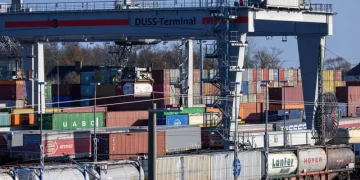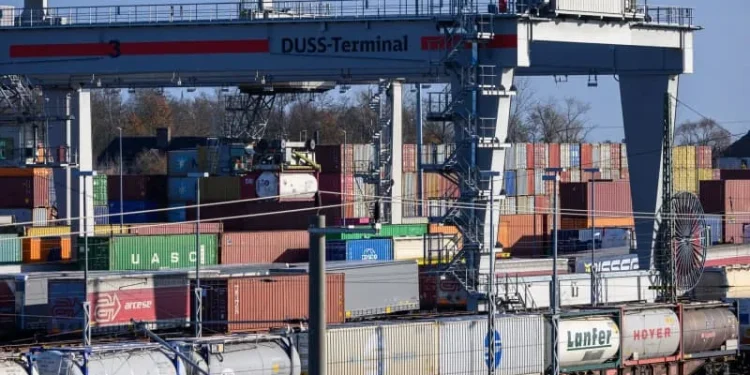By Maria Kalamatas | July 4, 2025
Berlin — July 4 — Germany’s rail freight sector is bracing for a weaker Q3 after preliminary June data from the Federal Statistical Office revealed a 2.8% decline in industrial production, particularly in chemicals, automotive parts, and machinery. Rail operators like DB Cargo and TX Logistik have already begun adjusting their schedules and capacity allocations.
“We’re seeing fewer full loads from southern factories, especially on eastbound routes toward Poland and Hungary,” said Jörg Reinhardt, head of intermodal logistics at TX Logistik.
While consumer goods shipments remain stable, bulk cargo and industrial volumes — the backbone of rail freight in central Europe — are sliding for the third consecutive month.
Repositioning and cross-border flows
In response, some rail providers are repositioning empty wagons toward high-volume corridors such as Rotterdam–Bavaria and Linz–Brno. However, cross-border efficiency remains challenged, with longer dwell times reported at key transfer yards near the German-Czech and Austrian-Hungarian borders.
“What’s worrying is not just the drop in volume, but the lack of visibility from shippers,” explained Martina Krüger, analyst at Rail Market Europe. “Many clients are only booking one week in advance.”
Trucking gains ground
Meanwhile, trucking firms in the region are seeing a slight uptick in demand, with short-haul freight picking up where rail has softened. But analysts warn this may not be a sustainable shift, especially with driver shortages still affecting last-mile operations across Bavaria and North Rhine-Westphalia.























